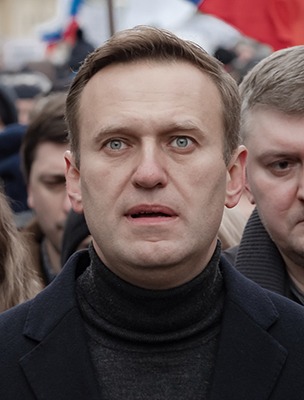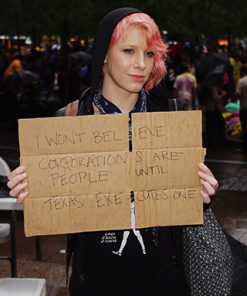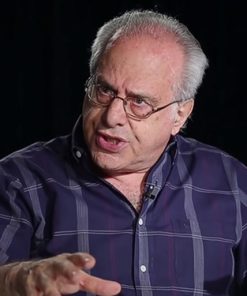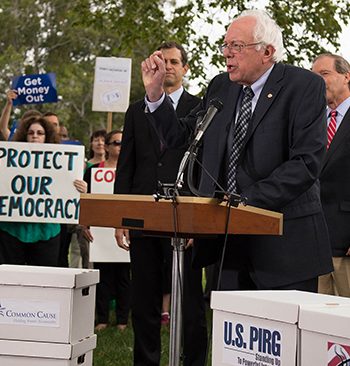Dictatorship rarely arrives in tanks or fiery speeches; it seeps in subtly, cloaked in appeals to security, order, and democracy itself. History brims with elected leaders who overstayed their welcome. They don’t seize authority overnight but chip away at restraints, weakening institutional checks until the presidency itself swells beyond its intended scope.
The rise of authoritarianism in 20th-century Europe—Hitler, Mussolini, Stalin—illustrates the peril of unchecked executive ambition. Each leader exploited crises: economic disasters, political upheaval, social anxiety. Yet none acted alone. Fragile institutions, complicit elites, and exhausted, fearful citizens enabled them. As Hannah Arendt cautioned in The Origins of Totalitarianism, authoritarianism feeds not only on overt oppression but on civic disengagement and resignation.
Today’s threats echo past alarms: attacks on independent media, demonizing opponents, weakening election integrity, undermining courts. Authoritarians manipulate law, claiming democratic legitimacy even as they corrode it. Legal technicalities often obscure their moves, allowing dangerous expansions of presidential power to appear ordinary or even necessary.
But authoritarianism also exploits psychological needs. Erich Fromm, in Escape from Freedom, described how individuals trade autonomy for the illusion of certainty and stability. Authoritarian leaders thrive by promising decisive action in exchange for obedience. The presidency becomes a locus of psychological dependency, conflating national identity with one individual’s will.
Democracy, however, demands vigilance. The assumption “it can’t happen here” invites disaster. Democracies rarely collapse abruptly; they wither gradually from neglect, manipulation, and the incremental normalization of abuses. To survive, democracy must reject passivity and institutionalize active civic engagement.
This vigilance means countering executive overreach explicitly. America’s founding was deeply skeptical of concentrated authority. Contrary to the so-called Unitary Executive theory—which wrongly posits the president as embodying the entire executive branch—the Constitution deliberately divides authority. The presidency must remain a tightly bounded office, balanced rigorously by other institutional powers and constant citizen oversight.
Yet current structural weaknesses allow excessive presidential power. The president’s role is narrowly defined by the Constitution as chief administrator and commander-in-chief during wartime—not as an omnipotent executive above scrutiny. The theory that the president singularly controls the executive branch dangerously distorts governance, opening doors to unchecked authority.
This distortion has real consequences. A rogue president, if shielded by politicized officials or complicit institutions, faces little physical accountability. Federal courts can rule presidential acts unconstitutional—but courts lack an enforcement arm. Without a concrete mechanism for enforcement, even the strongest judicial rebukes remain symbolic. Therefore, democracy requires an explicit, enforceable “ejector seat” for presidents who abuse power.
This means not only impeachment, which can falter politically, but additional constitutional or legislative provisions enabling Congress and courts to physically enforce compliance when a president refuses legal orders. Such provisions might involve temporarily transferring critical enforcement powers—such as control of security forces or law enforcement—from the presidency to a nonpartisan oversight body when presidential defiance occurs. The goal: immediate, enforceable consequences for ignoring judicial authority or congressional directives.
Moreover, democracy cannot rely on political courage alone. Systematic checks must include civilian control over all federal enforcement agencies—separated explicitly from direct presidential command when constitutional boundaries are breached. The military and federal law enforcement agencies must have clear, constitutionally codified mandates forbidding their use in presidential power struggles, ensuring loyalty to democratic processes rather than personal allegiance to one leader.
Presidential term limits must be strictly enforced without loopholes or manipulation. Franklin D. Roosevelt’s unprecedented four-term presidency prompted America’s 22nd Amendment, limiting presidents to two terms. But additional safeguards are required to prevent subtle extensions of influence—such as family succession or informal networks of power that perpetuate presidential agendas.
Beyond institutions, democracy demands a robust civic culture. Civic education emphasizing constitutional limits on executive authority, critical thinking, and historical awareness is essential. Timothy Snyder, in On Tyranny, argues democracy is learned behavior, continually defended by informed citizens.
Power, left unchecked, corrupts. Taoism wisely teaches that strength arises from balance, not domination. An excessively powerful presidency embodies imbalance, rigidly attempting control where flexibility and responsiveness are needed. Democracies survive by empowering institutions to constantly recalibrate power toward equilibrium.
Direct democracy initiatives like Switzerland’s frequent referendums or Iceland’s citizen-led constitutional revisions after 2008 highlight effective strategies. Citizen engagement directly limits presidential temptation toward authoritarianism, acting as preventive medicine against democratic decay.
Therefore, under Folklaw:
The presidency shall be explicitly limited to prevent authoritarian drift. The so-called Unitary Executive theory is rejected; executive power resides broadly across independent agencies, each accountable directly to law rather than presidential whim.
Executive term limits will be strictly enforced, barring any form of indirect extension of presidential influence. Judicial independence will be constitutionally safeguarded, with courts explicitly empowered—via constitutionally codified mechanisms—to enforce compliance physically against presidential noncompliance, aided by a politically independent civilian body overseeing federal enforcement agencies when necessary.
All federal law enforcement and military units will operate under civilian control separate from presidential direction whenever constitutional violations are determined judicially or legislatively, preventing misuse of force for political ends. Transparent, enforceable mechanisms to physically remove presidents defying lawful directives will be institutionalized clearly, swiftly triggered by independent judicial rulings.
Electoral integrity and media freedom will be constitutionally secured, removing presidential ability to control narratives or manipulate elections. Civic education will emphasize constitutional limits on presidential authority, empowering citizens to detect and actively resist authoritarian encroachment through informed participation.
Thus, democracy’s resilience depends explicitly upon limiting presidential power structurally, culturally, and institutionally—ensuring no president can undermine democracy from within.
Resolution
RESOLUTION TO LIMIT PRESIDENTIAL POWER AND REJECT THE UNITARY EXECUTIVE THEORY
Subject: A resolution establishing constitutional, legal, and institutional mechanisms to explicitly constrain presidential authority, prevent executive overreach, reject the Unitary Executive theory, and ensure enforceable democratic safeguards against authoritarian drift.
Whereas authoritarianism does not always begin with military coups or sweeping declarations, but often enters subtly, through appeals to order, security, or democracy itself, as elected leaders gradually erode checks and expand power beyond their original mandate;
Whereas the 20th century offers grim examples—Hitler, Mussolini, Stalin—of leaders who rose through democratic means and then exploited economic crises, political instability, and civic fatigue to consolidate power, aided by weak institutions, fearful populations, and elites who failed to act;
Whereas this dynamic is echoed in today’s environment, with attacks on press freedom, delegitimization of political opponents, manipulation of elections, and defiance of judicial rulings serving as familiar hallmarks of authoritarian encroachment masquerading as governance;
Whereas psychological factors play a critical role, as Erich Fromm explained in Escape from Freedom, wherein people surrender autonomy for the promise of certainty and strong leadership—transforming the presidency from a legal office into a symbol of national identity and emotional dependency;
Whereas this psychological allure, when paired with systemic failures—media distraction, voter suppression, judicial capture—can turn the office of the president into an unaccountable seat of power insulated from democratic correction;
Whereas the Unitary Executive theory dangerously distorts the U.S. Constitution by claiming that all executive authority is vested solely in the president, undermining the principle of divided, accountable governance and falsely framing the president as above or beyond institutional restraint;
Whereas the Constitution envisions a presidency with narrow duties—chief administrator, military command in wartime, and executor of laws—not a throne from which all executive action flows;
Whereas courts can rule presidential actions unlawful but lack the enforcement capacity to compel compliance, rendering judicial rebuke symbolic unless supported by clear mechanisms for enforcement;
Whereas impeachment, while essential, is vulnerable to political dysfunction and requires supplementation by structural tools that enable physical enforcement of lawful rulings against presidential defiance;
Whereas civilian control over military and federal enforcement agencies must be reaffirmed and protected from presidential misuse, with emergency transfer provisions enabling their operation independent of presidential command when constitutional violations occur;
Whereas presidential term limits must be upheld without manipulation or informal continuations of influence through family dynasties, surrogate officials, or captured agencies, and the lessons of Roosevelt’s four terms must be fully absorbed;
Whereas civic culture plays an essential role in sustaining democratic norms and preventing executive overreach, and must be strengthened through education that emphasizes constitutional boundaries, critical thinking, and historical literacy;
Whereas examples from Switzerland and Iceland demonstrate that direct democratic structures, such as citizen referendums and publicly drafted constitutional reforms, can provide critical resilience against autocratic drift;
Whereas recent U.S. developments—including the consolidation of executive power during Donald Trump’s second term and the delegation of sensitive federal oversight to Elon Musk’s “Department of Government Efficiency (DOGE)”—highlight the need for immediate structural limitations to restore balance and ensure no unelected actor wields sovereign influence;
Therefore, be it resolved that under Folklaw:
-
The Unitary Executive theory shall be rejected outright. The presidency is not synonymous with the Executive Branch. Authority is distributed among independently governed departments and agencies, all bound by law and subject to congressional and judicial oversight.
-
Executive term limits shall be strictly enforced, and any circumvention through familial succession, backdoor influence, or shadow government structures shall be barred by law and considered a constitutional violation.
-
Judicial rulings against unconstitutional presidential behavior shall be enforceable by law, with pre-established emergency procedures transferring enforcement power—temporarily and narrowly—to an independent civilian oversight body authorized to act on the court’s behalf, including the lawful deployment of federal personnel if necessary.
-
Civilian oversight of the military and all federal enforcement agencies shall be constitutionally required, with codified procedures prohibiting their use for partisan or personal executive aims. In instances of constitutional breach, agencies shall be temporarily removed from presidential command under direction of a neutral authority until balance is restored.
-
A clear and transparent ‘ejector seat’ mechanism shall be institutionalized, allowing for the immediate removal of a noncompliant president via jointly triggered action by the judiciary and a supermajority of Congress, with military and federal agencies legally bound to uphold such action.
-
Presidential control over electoral processes and public information shall be tightly limited, with protections for media independence, public broadcasting free from executive influence, and election administration overseen by nonpartisan bodies with robust anti-interference safeguards.
-
Civic education shall be nationally implemented and funded, focusing on democratic theory, constitutional boundaries, critical media literacy, and historical case studies of authoritarian drift, ensuring every generation can detect and respond to the signs of executive overreach.
-
National and local mechanisms of direct democracy—such as referenda, initiative processes, and citizen constitutional councils—shall be expanded, allowing for democratic correction outside elite-controlled channels and limiting centralized executive influence over legislation and public priorities.
-
Any future transfer of executive power or delegation of critical state functions to unelected individuals or private entities shall be prohibited, with oversight and enforcement mechanisms to immediately reverse such delegations and hold participating officials accountable.
Let this resolution serve not as a reaction to a single leader or moment, but as a permanent defense against all forms of creeping autocracy. A presidency bounded, observed, and correctable is not a weakness of democracy—it is its strength.
Fact Check
1. Authoritarianism often arises gradually, exploiting legal mechanisms, crises, and public fear.
✅ True. This is a well-documented pattern in political science and history.
-
Hitler rose to power legally through the Reichstag and was appointed chancellor before consolidating power through the Enabling Act (1933).
-
Mussolini became Prime Minister of Italy via legal appointment before turning it into a dictatorship.
-
Stalin, while rising through party ranks, capitalized on Lenin’s death and purged rivals through bureaucratic means.
📚 Sources:
“Authoritarian regimes rarely come to power through a sudden coup… Instead, they erode democracy gradually, often under the guise of legality.”
“Most of the power in authoritarian regimes is not taken but given… when people believe they’re protecting themselves.”
2. The Unitary Executive Theory posits that the president controls the entire executive branch.
✅ True. It’s a real and debated legal theory, especially prominent under the Bush and Trump administrations.
📚 Sources:
“The unitary executive theory asserts that the Constitution gives the president the power to control the entire executive branch.”
“The Bush administration invoked the unitary executive theory to justify presidential control over executive agencies and limit congressional oversight.”
3. U.S. courts lack enforcement power; enforcement depends on the executive.
✅ True. The judiciary relies on the executive branch to enforce rulings.
📚 Sources:
“The judiciary… has neither FORCE nor WILL, but merely judgment.”
“The Court’s lack of enforcement power means that rulings must be implemented by the political branches.”
4. Franklin D. Roosevelt’s four terms prompted the 22nd Amendment.
✅ True. The 22nd Amendment was passed in 1947 and ratified in 1951, directly in response to FDR’s unprecedented four elections.
📚 Sources:
“Passed by Congress in 1947, the amendment was a reaction to FDR’s four terms in office.”
🔮 OPINION-BASED CLAIMS (Not False—Just Interpretive or Normative)
These are valuable interpretations, but not strictly fact-checkable:
-
“Democracy requires an enforceable ejector seat.”
-
“Civic disengagement enables authoritarianism.”
-
“Military should be under civilian control separated from the president.”
-
“Civic education must be restructured to emphasize vigilance.”
💡 These are proposals or evaluative judgments, not verifiable facts. Think of them like a political TED Talk—passionate, thoughtful, and well-argued, but ultimately subjective.
✅ Summary Judgment:
The statement is largely TRUE in its historical analysis and legal descriptions. It incorporates interpretive and normative arguments, many of which are supported by scholarly literature and historical precedent.
Certainty: 95% for factual claims; 70% for current political context; opinion-based proposals are subjective but informe






Discussions
There are no discussions yet.